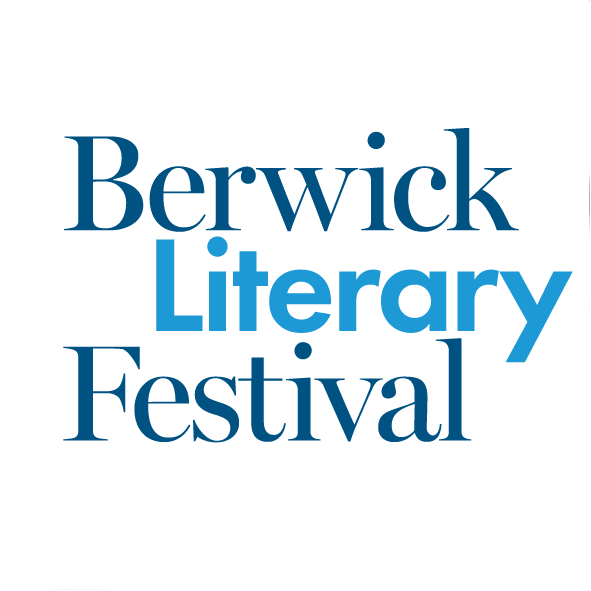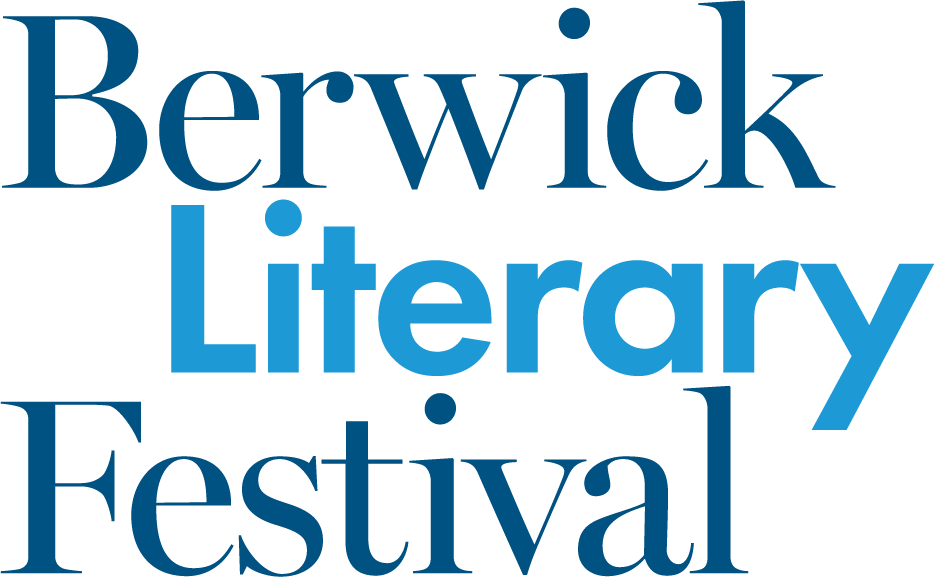Elegies from the Poetry Workshop
Berwick Literary Festival 2024
Introduction
When the pandemic unleashed a collective mourning for something far wider than our own experience, many people were inspired to write, and this great classical form thrived. Our workshop explored the scope of the contemporary elegy; it can articulate grief for a loved person, a heritage, identity or landscape. Whether personal, communal or universal, the elegy can carry warmth, hope, consolation and gentle humour.
We opened by reading Gillian Clarke’s Lament, an iconic poem written in response to losses inflicted by the Gulf War on humanity and the natural world. Participants were invited to write about a lost place or way of life, adopting Clarke’s form in which a list of images creates momentum. Hugo Williams’ new elegy i.m. The West Pier evoked an era, stimulating writing about a particular location such as a not necessarily beautiful building. I had also asked writers to bring in an object associated with a loved one; utensils and trinkets launched more intimate elegies. To help overcome the dreaded empty page and generate a first draft, each writing exercise included prompts that could be followed, adapted or abandoned.
The poems below – some elegies, others elegiac in tone – were written at or after the workshop. As there was a balance between places and people, I ordered the poems accordingly, so we travel towards the private sorrows.
Anne Ryland
Writer and Poetry Workshop Tutor
https://anneryland.co.uk
May 2025
Memories of Greece
I carry within me an ache for the sun,
for deep blue skies and a shining sea;
where the warmth of a breeze
fans over the waves and washes over me.
I carry an ache for the tamarisk trees
whose shaking, feathery shadows and leaves
flicker over the harbour’s low sea wall
where waves slap and lick at rounded stones.
I carry an ache for the jubilant shouts
of blackbirds, in the citrus and olive groves
where, like an frenziedly unwinding watch,
in the leathery leaves the greenfinches buzz.
I carry an ache for the friendly warmth
shown by locals, just met and barely known,
with their ready smiles and puzzlement
as they decipher my faltering Greek.
And strangely I also carry an ache
for a scruffy Peloponnesian town
where prayer-flags of litter flutter amongst
the rusting crew-cuts of roofless homes.
But most of all I carry an ache
for an ice-cold ouzo’s aniseed taste
as I watch from a small taverna’s chair
the sun slide into a wine-dark sea.
Tim Binder
Railway Cottage, Haugh Head
Net curtains hang off-kilter at windows left grubby
from fumes and dust kicked out by lorries and cars,
whose occupants drive by without a glance
at this cottage shrouded in sombre conifers.
The cottage that stood proud, under the embankment tracks
that took the trains, from Alnwick to Kelso,
that stopped to take on water from the cottage well.
Noisy and busy until the ’60s death knell.
The cottage looks empty, workshops and sheds derelict
along with discarded pens for red setters, bred there
by the family that bought it from my family, decades ago
after life intervened and moved us away.
Roof tiles slipping, window frames cracking, paint peeling,
strawberry gardens given over to nettles and elders;
apple trees, heavy once with solid cookers,
now bare branches, twisted with lichen.
The cottage tucked in a perfect spot,
next to the footpath to the Cheviots,
in the county at the top of the list
for countryside seekers planning to visit.
When will it be loved again?
Jill Simpson
Elegy For a Place Forsaken
Gone the mine worked for coal,
gone the Co-op shop where you were served
and earned your dividend.
7717 my mum’s number,
6550 my gran’s.
No more blue paper bags for the currants.
Now the shop is part of the open air museum
where visitors marvel at the antiquity of it all.
Gone the terraced houses,
gone the snecked gates,
gone the coal fires, the outside netties,
gone the friendly folk, the neighbourliness, the identity.
There is an emptiness.
Not a visit to a remembered place from childhood
but a friendless space.
Gone the place where people stopped to talk.
Gone the footsteps of the past,
gone the soul.
The air is heavy with memory.
Mary Atkinson
Cresswell Hall: The Stable Block
Scattered skeleton of walls; loose sandstone blocks on earth, in air;
decayed dilapidated Regency; each year a brutal fresh graffiti layer;
rubbled grass and bouldered moss surround a deep and damaged well,
its mysterious mechanism robbed, a gin-gang’s radial turning gone.
They used to stable horses here, harness them to coaches,
to take the monied family, on days they designated holiday
along the carriageway towards the folly tower, towards the sea.
Now the part walls have no roof, no gates,
no stamping hot breath, no shires’ or ponies’
warm air rising, no smell of dung,
no chattering grooms, no industry.
And the house that gave these walls a purpose is
not in ruins, not a vandal’s weekend spray,
not an essay to the lottery, but is vacant space,
no relics strewn, no footprint in the earth,
not even a single stone to be left unturned.
Philip Hood
The Lost Middle
We were rural kids,
not ready to go from 80 to 800 at the age of nine.
And the school – Belford Middle, not St Mary’s C of E
as they renamed it – was a happy place,
where we studied the trees, took care of the pets,
and listened to our teachers.
By the time we left, we were miles ahead in maths,
and the hour on the bus was no longer (so) scary.
Now the place – always rated ‘good’ –
is a ruin.
Authority greed stole from children
who used to play on the grounds, asphalt, grass,
for hours and days.
They could have saved our school. (Could still save others…)
Instead, our memorial trees are a waste ground,
and children have nowhere to go.
You must pass the doleful place to get to the end of the street.
Overgrown, falling down –
they should’ve let Mr B’s Bunsen burners do the rest.
Why did they board up the glass when the future is wrecked?
Kirsty Ord
Gaza’s Poppy
With Spring around the corner
a lone vibrant poppy
ventures to bloom
in the face
of destruction.
Swathes of these fragile flowers
once graced the fields of Gaza.
You, little one, are that solitary poppy.
Others lie, red petals shed,
under the rubble and dust beneath your bare feet.
No-one left to play games
shaped by simple, made-up rules.
Instead, despots and factions
deny you the safety of a home,
of food, care and shelter
among ruins;
leave you bereaved
of parents, family,
playmates.
What is to become of you?
Meg Lorimer
The poem was inspired by an article (by Nesrine Malek) and a photograph that appeared in the Guardian on January 27th 2025.
The Blue Cap
I saw him walk into the café –
thin, blue baseball cap,
that particular walk –
and my heart missed a beat.
My eyes lingered as I realised
my mistake, and found it
difficult to return to the moment.
My coffee lay cooling,
the breeze brushed my hair
and both of my feet
remained on the ground.
Around me families were eating,
seated at tables,
chatting about their day.
I sat under the trees,
a full canopy of deep green leaves,
acres of grass underfoot, cut
and clipped to park perfection,
and I remembered
one of the last things he said –
‘I wish I could be in green fields again.’
Edwina Lugg
Soldering
You were always down the shed,
six feet from the back door, tethered
to the house by a loop of grey cable
so you could never stray too far.
A workbench scattered with tools.
Scraps of emery paper ingrained
with rust – Rothko miniatures – coated
now with the dust of passing years.
How many clocks were turned back,
how many ticking meters restored
to sparkling black in this distant
shiplapped shack?
We always raced to flick your switch.
A quick dot-dash your signal to pause,
to come indoors for fish and chips
or liquored pie and mash.
And sometimes you allowed me in.
My chin propped on the bench,
I watched soft metal melt into globes
that glistened like tears.
Colin Fleetwood
Mother-of-pearl
I can see my mother now
sitting at the plain, wooden dressing table
in the bedroom that she was rarely in,
except to sleep.
Her normal attire was a pinny,
crossed over at the front, while she plied
her never-ending rounds with broom and dust pan,
kneading dough, chopping vegetables, dicing meat.
The apron was discarded in summer for outside work,
helping with hay bales, stooking scratchy sheaves of corn.
And swopped for a heavy winter coat and boots
to take out fodder to the young stock.
But whenever she had reason to go off the farm
she shed her work clothes,
a butterfly emerging from a chrysalis.
The Kirby grips pinning back her hair
were dropped into the mother-of-pearl shell.
Smooth, rounded, shiny and iridescent,
it stood out amid the brush and comb,
the stick-like clasps within almost
a slur to its elegance.
I sometimes witnessed this metamorphosis
but she never told me to leave her be.
Though I see now that this was her chance
for an oasis of respite, simply her time
to be herself, herself alone.
Maggie Harker
Ella’s Pie Funnel
In the drawer of the well-loved and redundant,
pie chimney, you stand above the rest:
the tousled pastry brushes, tannin-stained strainers,
tainted silver sugar tongs, and tiny Andy Capp cork screw,
and not forgetting, the elegant sixties hand rotary mixer.
A departing gift from Ella, you now prop up my pies
with sturdy stoneware figure, and creamy crackled glaze.
Feet, well grounded, support a plump girth and shoulders.
A neck stretches above it all, an opened mouth lets off steam.
Embodied in your form is the past, steadfast and sure.
You are Ella personified, a comfort beyond price.
L S Gray


